Are Pampers Aqua Pure Wipes Safe?
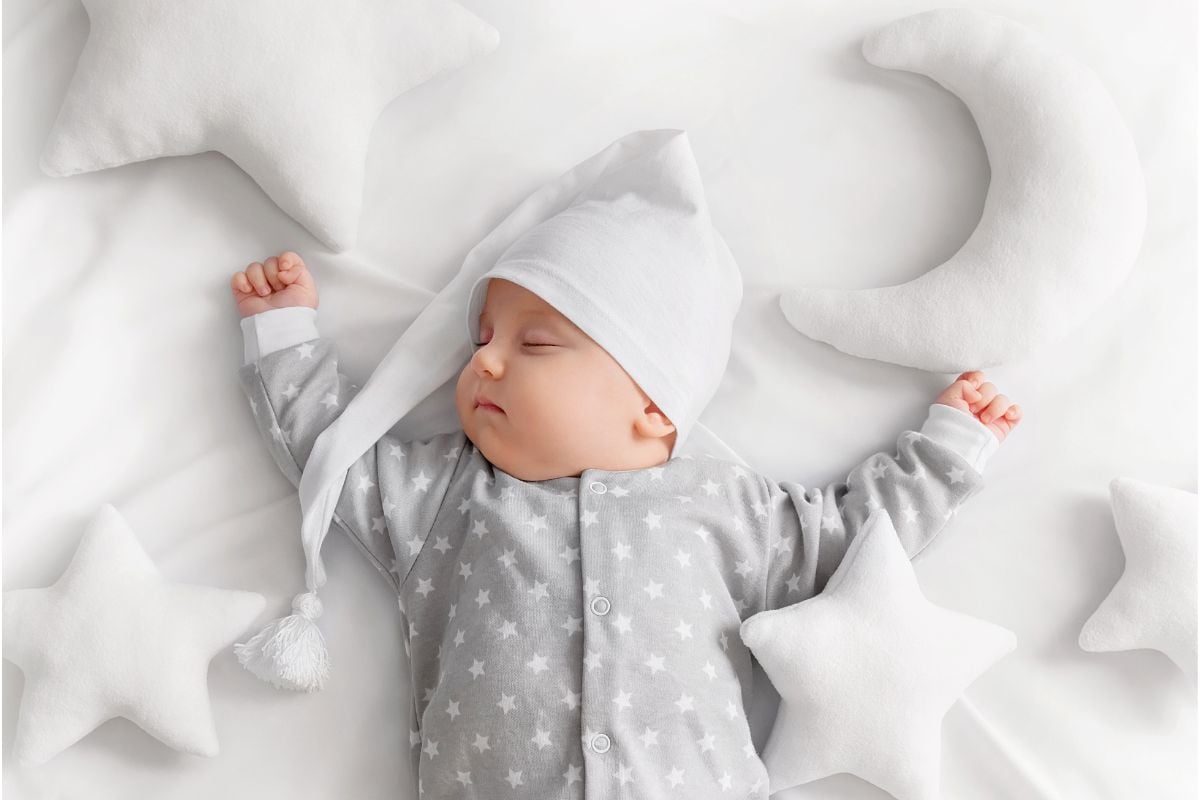
Do you use Pampers Aqua Pure wipes on your baby? The good news is that they made it to the top half of our Baby Wipes Rating List, yet not to the very top. In this detailed review, we will look into the ingredients of two kinds of Pampers baby wipes. Namely, we will compare Pampers® Baby Fresh™ Scent and Pampers® Aqua Pure baby wipes. You will see why, in our opinion, Pampers Aqua Pure wipes are not the safest baby wipes, even though they are rated best among Pampers baby wipes. As a bonus, you will get answers to some common questions about non-toxic baby wipes. For options of the safest baby wipes, please refer to our Baby Wipes Rating List.
Are Pampers Aqua Pure Wipes Safe?
It definitely gives you peace of mind to know that you are using safe baby wipes on your baby. I’ve been there: I had the same concerns after my son was born. That was the reason I started doing research on baby wipes in the first place! Since then, reading labels has turned into my life’s work.
All the wipes investigated by I Read Labels For You are included in our annually updated Baby Wipes Rating List. To form our opinions on the safety of ingredients, we study scientific and medical literature and other credible sources. In addition, we survey the industry and manufacturing processes to understand the product better.
Wet Wipes Ingredients And Skin Penetration
When it comes to wet wipes, including Pampers baby wipes, it’s important to note that after you use the wipes on your baby, their ingredients don’t just evaporate from the skin. As a matter of fact, our skin can absorb things put on it, which may end up in our bloodstream. To illustrate, nicotine patches and birth control patches are more effective when delivered via the skin.
Further, different chemicals penetrate the skin at different rates. Some chemicals barely penetrate the skin because they have big molecules. Others penetrate the skin very well, especially when a product contains ingredients that enhance skin absorption. Therefore, we would like baby wipes to have as few concerning ingredients as possible, or better yet – none whatsoever.
Let’s compare the ingredients of Pampers Aqua Pure wipes and Pampers Baby Fresh Scent wipes and see if they have any concerning chemicals.
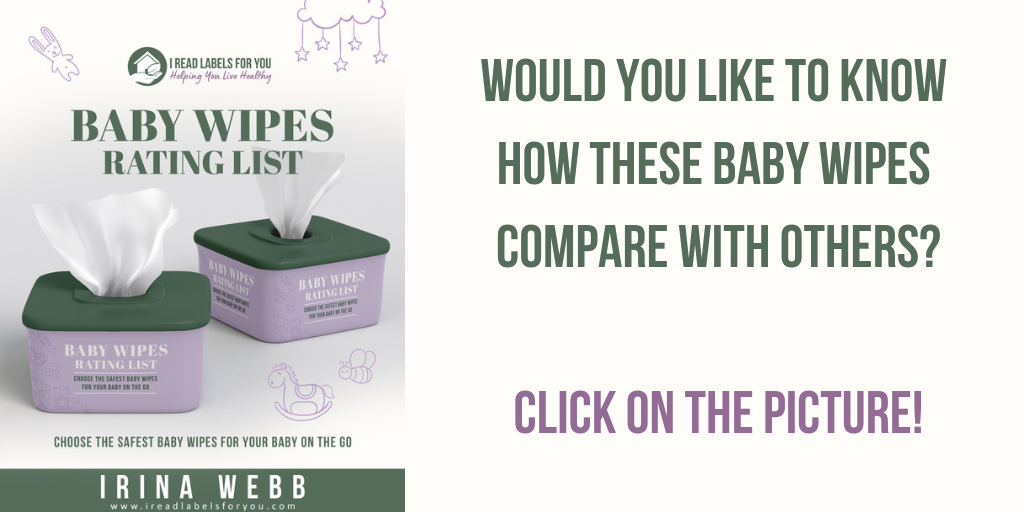
Pampers Aqua Pure Wipes And Pampers Baby Fresh Scent Ingredients
As of January 2023, the ingredients in Pampers® Baby Fresh™ Scent and Pampers® Aqua Pure baby wipes are as follows (source):
| Pampers® Baby Fresh™ Scent Wipes | Pampers® Aqua Pure Baby Wipes |
| Water Citric Acid Sodium Citrate Disodium EDTA Sodium Benzoate Sorbitan Caprylate PEG-40 Hydrogenated Castor Oil Fragrance Xanthan Gum Polypropylene and regenerated cellulose (cloth material) | Water Citric Acid Sodium Citrate Disodium EDTA Sodium Benzoate Sorbitan Caprylate PEG-40 Hydrogenated Castor Oil Organic cotton, regenerated cellulose, and polyester (cloth material) |
Both Pampers Baby Fresh Scent wipes and Pampers Aqua Pure wipes share their core ingredients (in bold). Yet, due to seemingly minute differences, the final rating of Baby Fresh Scent wipes is much worse than that of Aqua Pure ones. Stay with me to learn how and why we rated the Pampers baby wipes ingredients in our Baby Wipes Rating List.
To clarify, in our rating list, we applied a scale from 0 to 10. Hence, the safest ingredients, in our opinion, received the lowest value of 0 (e.g., certified organic oils). And those that we consider the most toxic received the highest value of 10 (e.g., benzalkonium chloride). Check out the table below for the rating of the ingredients in Pampers baby wipes and the reasons for this rating.
Ingredients Rated Under 5
| Baby wipes ingredient | Rating | Reason for the rating |
| Citric Acid | 1 | – adjusts acidity (usually used in tiny quantities) |
| Disodium EDTA | 1 | – increases skin absorption (i.e., if there are any contaminants in Pampers Baby Fresh Scent and Pampers Aqua Pure wipes, their absorption will increase) |
| Sodium Benzoate | 3 | – one of the safest food-grade preservatives – American Contact Dermatitis Society lists it among allergens because, in concentrations of 5% and higher, it may increase the risk of an allergic reaction – We don’t know the concentration of sodium benzoate in Pampers baby wipes. Please be alert and stop using them in case of irritation. |
| Sorbitan Caprylate | 2 | – belongs to the group of sorbitans that are only mild irritants (CIR) – We would not worry about it when it comes to products for adults, but we would make a note of that for baby products. |
| Sodium Citrate | 1 | – adjusts acidity (usually used in tiny quantities) |
| Xanthan Gum | 1 | – common thickener – generally considered safe but is often produced from genetically modified corn (we don’t know its source in the Pampers baby wipes) |
| Water | 0 | – causes no concerns when preservatives are present |

Ingredients Rated 5 And Higher
| Baby wipes ingredient | Rating | Reason for the rating |
| Fragrance | 8 | – a mixture of undisclosed chemicals, many of which are associated with allergies, dermatitis, respiratory distress, and potential effects on the reproductive system – may contain potentially harmful chemicals including styrene, diethyl phthalate, and butylphenyl methylpropional (lilial), linked to skin sensitization, reproductive toxicity, endocrine disruption, and cancer – Particularly in baby products, we would avoid fragrance, including natural fragrance. It is good that Pampers Aqua Pure wipes are fragrance free (unlike Pampers Baby Fresh Scent). – If you and your baby are okay with essential oils, you can use our Baby Wipes Rating List to choose those scented with essential oils (or totally unscented baby wipes). |
| PEG-40 Hydrogenated Castor Oil | 5 | – conditioner and emulsifier (keeps ingredients from separating) – ethoxylated ingredient with contamination concern with carcinogenic ethylene oxide (refer to Hidden Ingredients in Best Baby Wipes to learn how to spot potentially contaminated ingredients) |
Pampers Baby Wipes Cloth Materials
| Baby wipes ingredient | Rating | Reason for the rating |
| Organic cotton Regenerated cellulose Polyester (cloth material in Pampers Aqua Pure wipes) | 6 | – First, it is great that Pampers Aqua Pure wipes use organic cotton instead of conventional cotton because this prevents pesticide and fungicide contamination. However, it is not clear whether the cotton is GOTS certified. – Second, regenerated cellulose, aka rayon, is made from wood pulp. The process of turning wood pulp into fabric may involve solvents that are potentially toxic to the environment. – Third, polyester is produced from a polymer synthesized from crude oil. Chemicals are used both during the manufacturing process and afterwards to impart a variety of features on polyester. Some of these features are shrinkage-, wrinkle-, stain-, bacteria-, and static resistance, softness, color, and flame retardant qualities (source). Therefore, we are not happy about polyester in Pampers Aqua Pure wipes. |
| Polypropylene Regenerated Cellulose (cloth material in Pampers Baby Fresh Scent wipes) | 9 | – First, the specific ingredients of polypropylene are undisclosed. What we know is that it is an unbiodegradable type of plastic with a recycle code 5, made from crude oil, natural gas, and coal. Please study this research that states that most plastic products, including the “BPA-free” ones, release hormone disrupting chemicals. – Second, regenerated cellulose is made from wood pulp, and the manufacturing process turning it into a soft fabric involves chemical solvents. – Thus, we are not fans of the materials used for the Pampers baby wipes cloth. |

Conclusion About Pampers Aqua Pure Wipes
In this review of Pampers baby wipes, we have compared the ingredients of Pampers® Baby Fresh™ Scent and Pampers® Aqua Pure baby wipes. The ingredients these two kinds of wet wipes share have ratings between 0 and 5 in our Baby Wipes Rating List (on a scale of 0-10, with 10 as the most toxic).
Further, one of the ingredients that made the final rating of Pampers Baby Fresh Scent wipes plummet is fragrance (rated 8). Indeed, in our opinion, baby products should have no fragrance because it is a blend of numerous ingredients, many of which associate with health issues.
The great news is that Pampers Aqua Pure wipes are fragrance-free. Hence, they made it to the top half of our Baby Wipes Rating List. However, they are not at the very top (meaning there are safer baby wipes on the list) because they contain an ethoxylated ingredient.
As for the wipe cloth, we like the cloth of Aqua Pure wipes better because it is partially organic cotton. However, we are not fans of polyester and regenerated cellulose as the two other components of the fabric. Still, the cloth material in Pampers Aqua Pure wipes has a rating of 6 as compared to the rating of 9 for the cloth in Fresh Scent Pampers baby wipes (regenerated cellulose and polypropylene, a type of plastic).
In case you wonder about Pampers Sensitive baby wipes, please turn to our Baby Wipes Rating List to see their safety rating.
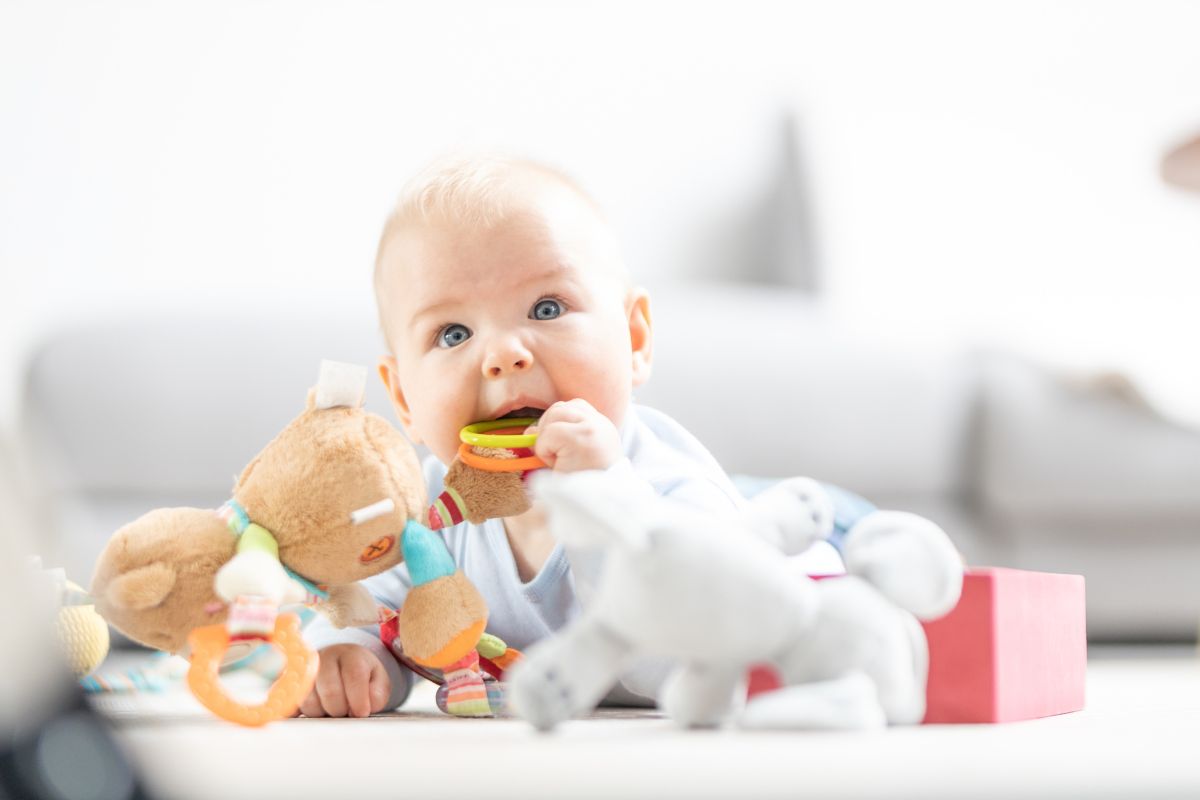
Frequently Asked Questions
In this bonus section, you will find answers to some frequently asked questions about baby wipes regarding their safety.
Which Baby Wipes Are The Safest?
Generally speaking, over the last few years, baby wipes have become safer. Specifically, companies stopped using formaldehyde-releasing preservatives and are even replacing phenoxyethanol with sodium benzoate.
Thus, both Pampers Aqua Pure wipes and Pampers Baby Fresh Scent wipes use sodium benzoate, a common food preservative. Bear in mind, though, that the American Contact Dermatitis Society considers it a potential allergen when used in concentrations of 5% and higher. (Please be alert and stop using Pampers baby wipes if irritation occurs.)
How to find the safest baby wipes? Look at the wipes’ ingredients on the package or website and see if they contain any potentially harmful ones. Namely, you don’t want fragrance (even natural fragrance), harsh preservatives, or ethoxylated ingredients in your baby wipes. If you spot at least one of these ingredients, these are not your safe baby wipes, in our opinion.
Also, look at the cloth fabric of the baby wipes. For example, the cloth for Pampers Baby Fresh Scent wipes consists of polypropylene and regenerated cellulose. To clarify, polypropylene is a type of plastic which may release hormone disruptors. And regenerated cellulose must go through processing, involving chemical solvents, to become a soft fabric. So, in our opinion, this is not the best choice of materials.
The Pampers Aqua Pure wipes cloth is slightly better because it is partially organic cotton. The baby wipes made of pure organic cotton are some of the safest on our Baby Wipes Rating List.
What Is The Best Brand Of Wipes?
To begin, the concept of the “best” wipes includes such variables as price, count, material, performance, thickness etc. Yet, in our opinion, safety based on the wipes’ ingredients should come first. Therefore, we should select the “best” ones from the safest baby wipes.
To find the safest baby wipes, look at the ingredients of several products and choose the one with the fewest potentially harmful ingredients. For instance, in our comparative ingredient review of Pampers baby wipes, we discovered that Pampers Aqua Pure wipes are safer than Pampers Baby Fresh Scent wipes. Despite the fact that both kinds contain an ethoxylated ingredient, Aqua Pure wipes are fragrance-free, which is a huge plus. (Find out why we rate the toxicity of “fragrance” 8 out of 10 in our blog post about natural fragrance.)
Although product ingredient research is time-consuming and overwhelming, it is doable, and you can definitely do it by yourself! If, however, you would like to save time and energy, you can turn to our Baby Wipes Rating List E-Book. It’s a compilation of over 60 baby wipes ranked by the safety of their ingredients per the available scientific data. Basically, what you do is pull up the safest baby wipes options and choose those that suit your needs best.

Which Baby Wipes Are Best For Newborns?
While all baby wipes are intended for babies, including newborns, there are several important factors to take into consideration.
For starters, it is important to remember that babies’ skin is more sensitive than that of adults. Specifically, it may react not only to the “harsh” wipes’ ingredients, such as preservatives, fragrance, and ethoxylated ingredients. It may also react to the seemingly mild ones, such as extracts and oils.
In our opinion, when selecting baby wipes that are the best for newborns, avoid those containing fragrance, ethoxylated ingredients, and harsh preservatives. For example, some Pampers baby wipes have fragrance. We would suggest not using them on newborns (and on babies, in general). As for Pampers Aqua Pure wipes, they are fragrance free, which is great, but still have an ethoxylated ingredient.
Ultimately, looking at the actual list of ingredients is the key to finding the safest baby wipes for your newborn. By doing so, you can spot and avoid those that may trigger an allergic reaction in your baby.
As a new and busy parent, you may need help with that. This is exactly why we created our Baby Wipes Rating List with a separate ingredient breakdown file of over 60 baby wipes. No need to spend hours jumping from one website to another trying to decipher the ingredients of tons of products. We have done it for you! Just open the file, look at the ingredients, and choose non-toxic baby wipes for your newborn in a matter of minutes!
What Are The Least Toxic Baby Wipes?
In our opinion, to find the least toxic baby wipes, first and foremost we should eliminate those that have fragrance.
Indeed, fragrances (aka aroma, parfum, and even natural fragrance) are mixtures of (often undisclosed) ingredients linked to health problems:
- allergies
- dermatitis
- respiratory distress
- potential effects on the reproductive system, and even
- hormone disruption.
If Pampers baby wipes are your favorite, opt for the fragrance-free ones, e.g., Pampers Aqua Pure wipes. Using our Baby Wipes Rating List, you can easily find unscented baby wipes or the wipes scented with essential oils.
Second, avoid wipes that have PEGs, polysorbates, and words with “-eth” (e.g., laureth). These are “ethoxylated” ingredients that may have residues of carcinogenic ethylene oxide due to the manufacturing process. Both kinds of Pampers baby wipes – Aqua Pure and Baby Fresh Scent – have an ethoxylated ingredient (PEG-40 Hydrogenated Castor Oil).
Next, eliminate wipes with benzalkonium chloride, ranked the highest of 10 in our Baby Wipes Rating List for its toxicity.
Finally, it is best to choose the wipes made of organic cotton as opposed to polypropylene (i.e., plastic). Many a time, manufacturers won’t post their wipes’ cloth materials on their website. So, unless you purchase our Baby Wipes Rating List that contains this information, you might need to contact them yourself.

Can Baby Wipes Expire?
Yes, baby wipes can expire, and here is why.
Preservatives are necessary if water is one of the main ingredients of wet baby wipes. Indeed, preservatives are a must in non-toxic baby wipes because they help prevent mold and bacteria contamination.
The downside is that strong and long-lasting preservatives that prolong the shelf life of a product come at a price because they relate to an array of potential health concerns. For this reason, manufacturers use milder preservatives, but they don’t last as long and have an expiration date. It means that the expiration of the preservatives leads to the expiration of the baby wipes.
As for Pampers baby wipes, they do use a milder preservative – sodium benzoate – both in Pampers Aqua Pure wipes and Pampers Baby Fresh Scent wipes. Although it is a common preservative in food, you can find it in the American Contact Dermatitis Society Core Allergen Series. Specifically, manufacturers should not use it in concentrations of 5% or higher to prevent the risk of an allergic reaction. Since we don’t know how much sodium benzoate Pampers baby wipes contain, please be alert and stop using them if any irritation occurs.
What About Pampers Diapers – Do They Have PFAS?
First of all, per- and polyfluoroalkyl substances (PFAS) are ubiquitous because they have contaminated drinking water and the environment on every continent. In fact, tests revealed PFAS in the blood of over 98% of Americans! PFAS have association with human risk of thyroid disease, stunted development, weakened immune system, high cholesterol, cancer, obesity, and diabetes (source).
What is the connection between PFAS and diapers?
Well, they use PFAS to create coatings with waterproof and anti-stain properties, which is relevant to diapers. In 2023-2024, independent researchers, including I Read Labels For You, tested some diapers for PFAS. Specifically, IRLFY tested Pampers Swaddlers diapers in February 2024 with the help of SimpleLab, founded by the water-testing service Tap Score (email me for a 10% discount). To learn about the results of the testing and what they mean for you, download my Diaper Rating List e-book.
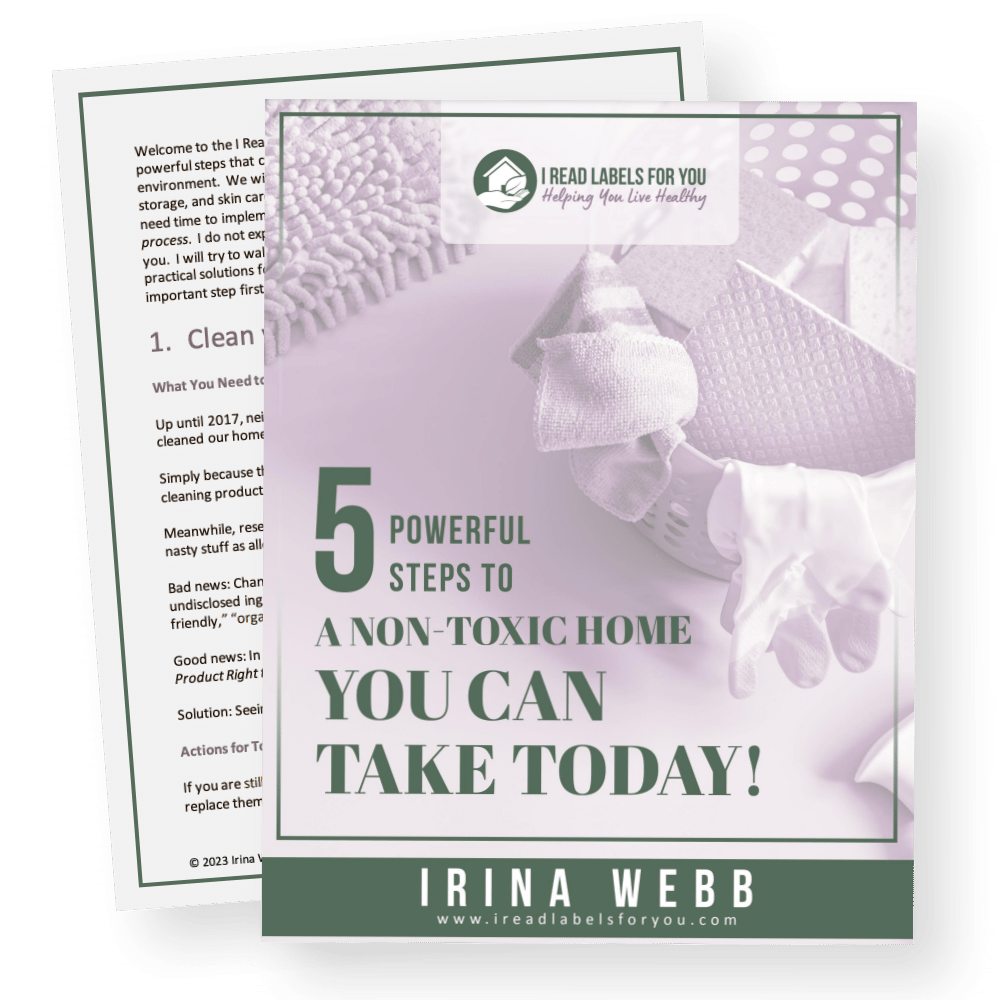
Download The Free Guide!
5 Powerful Steps To A Non-Toxic Home
Join our informed consumer community and get our free guide the “5 Powerful Steps To A Non-Toxic Home”.

 Written by
Written by 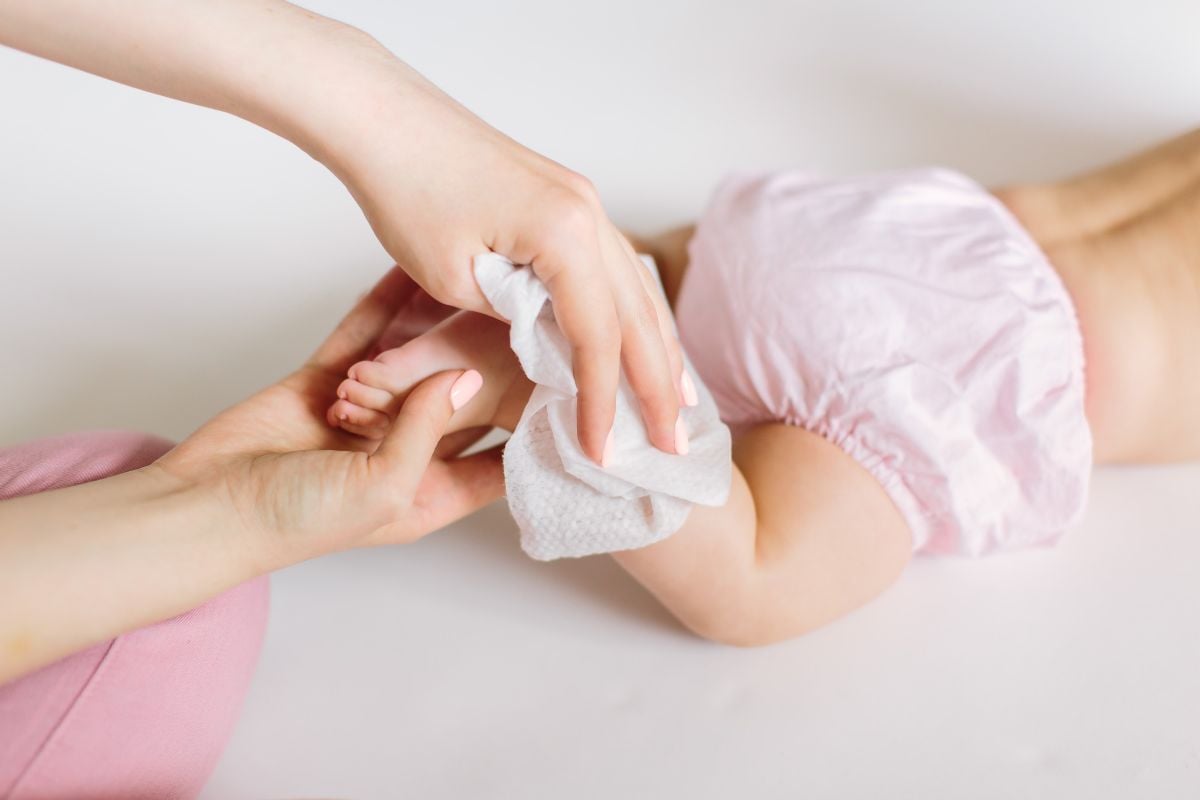

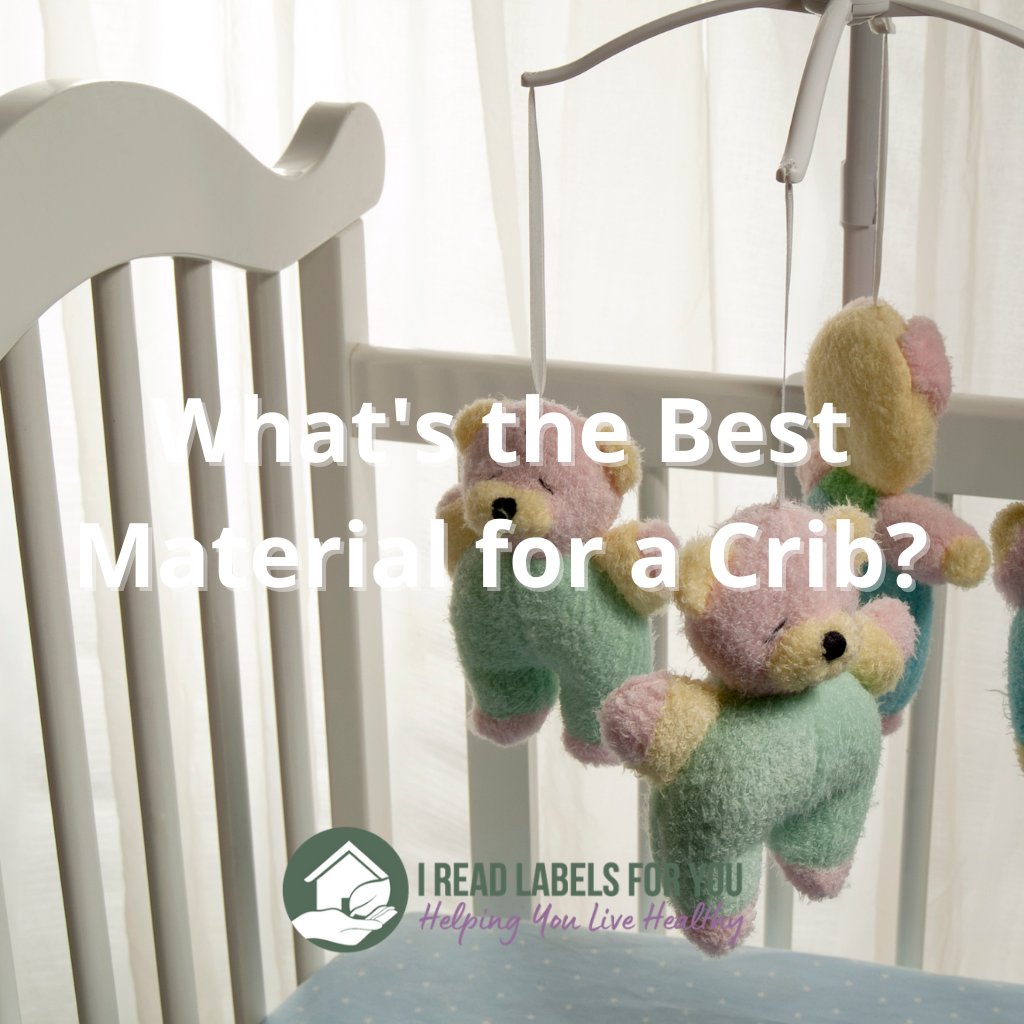
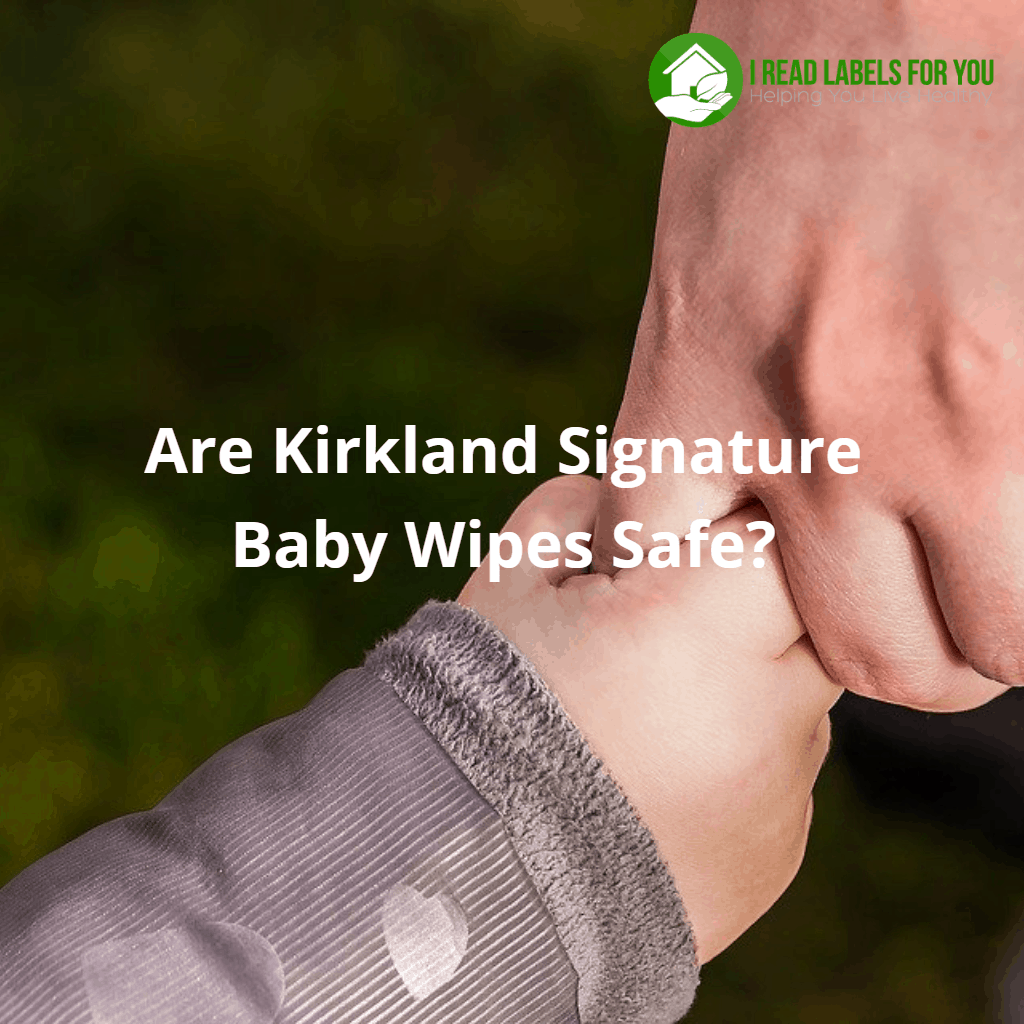
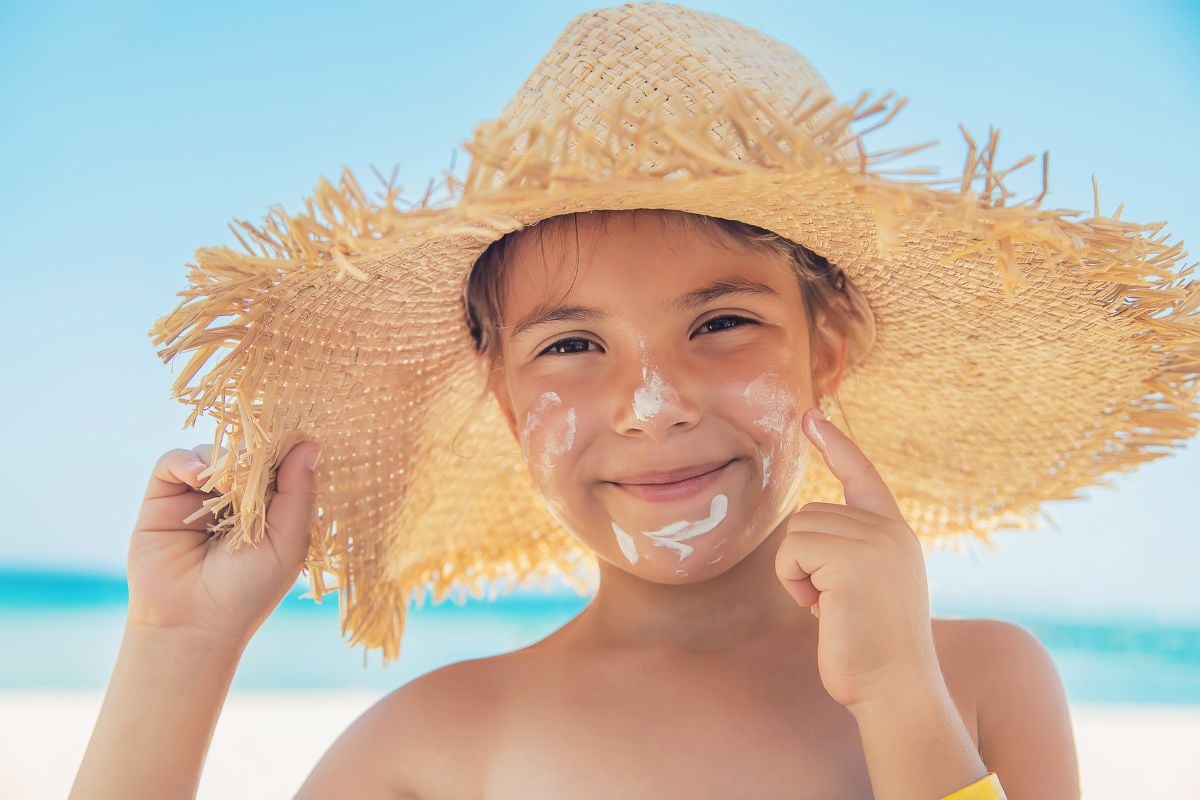
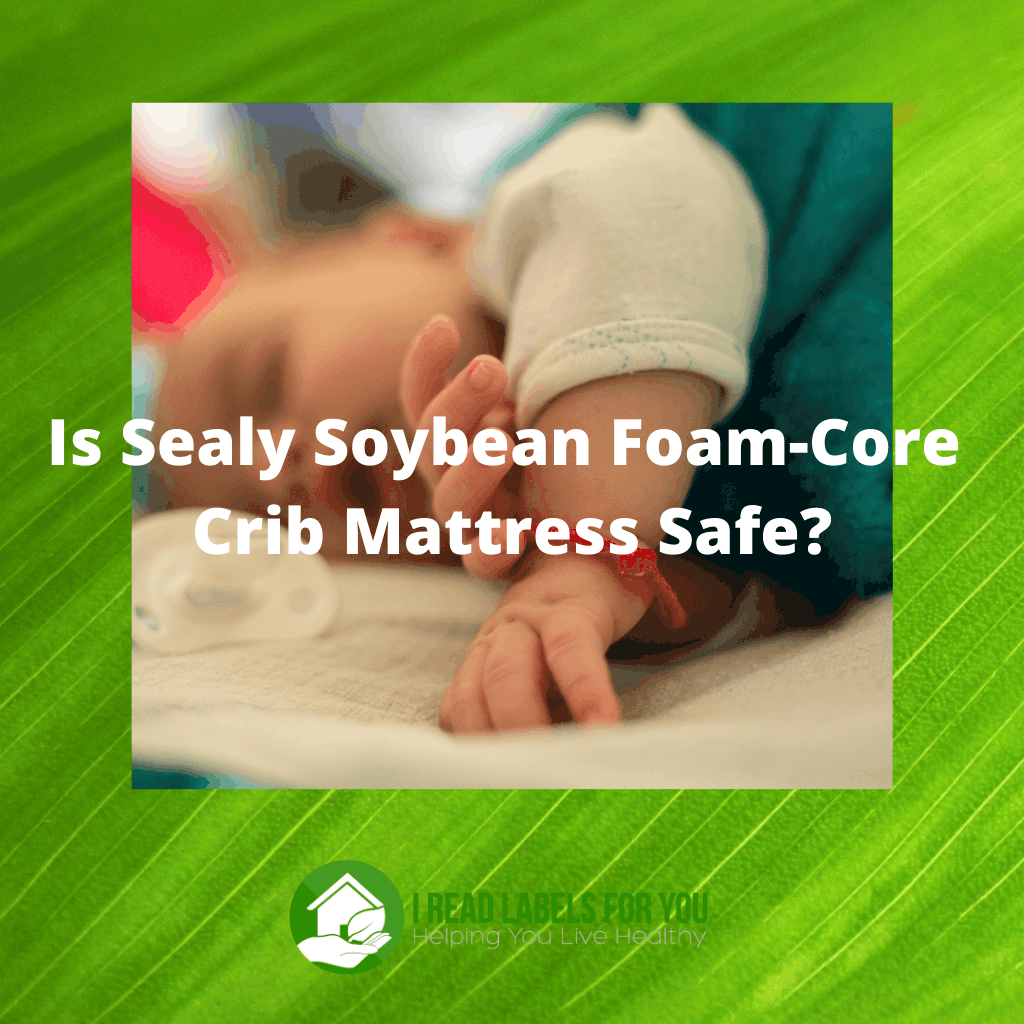
Maybe could mention that phenoxyethanol (found in some wipes) is toxic for babies if ingested.
Citric Acid hurts chaffed skin. If you don’t believe me, try a little lemon juice on your lips the next time they are chapped. Wash clothes warm water and a little simple soap and then rinse will always win over wipes.
Of course, it will. Lemon can also irritate healthy skin. It is a matter of the amounts though. I applaud you for not using baby wipes. No baby wipes are better than the safest baby wipes. I washed my baby under the running water instead. However, I can’t expect others to do the same, especially when traveling. Thank you, Marcia, for your input. ~Irina
This might be silly, but do you know if there is soy oil or any type of soy in Pamper’s sensitive baby wipes?
Hi, Kari: I will look into that when I update my Baby Wipes Rating List. Thank you for asking. ~Irina
have you tried WaterWipes??? they only have 2 ingredients! water and 0.1 percent of fruit extract!! (: we just switched bc my son got a blister that looks like a chemical burn while using pampers “sensitive” wipes!!!!
Hi, Dominique: here is my review of WaterWipes: https://ireadlabelsforyou.com/waterwipes-baby-wipes-natural-or-toxic/ ~Irina
I am a 72 year old woman with a little bit of a butt condition lately. I recently purchased and just used Pampers Sensitive Baby Wipes for this problem. On first swipe I almost fell off the seat from the unbearable stinging sensation. My first thought was… what in the world is in these things? And then…how would a baby be able to bear with this? … I would never use these things on a baby and will not be using them any more for myself!
I’m in my mid 60s and I’ve tried different kinds of butt wipes and they all gave me a rash. I talked my husband into installing a bidet. If you have that option, it’s a great way to go. He even loves it. We also moved to a home with a septic tank and you cannot use wipes in them. So the bidet is great
My daughter is two and she just started breaking out today all over from these wipes. I am afraid to use wipes now. What is the best option to clear this up besides using different wipes?
Has the ingredient list changed since this post? I’m trying to explain to my cousin that Pampers isn’t better than Huggies and vice versa. I thought they were equal products (not good but just as bad as one another) but these Pampers wipes are more worrisome but I also read elsewhere that in 2013-2014 most companies started to change their formulas to exclude some chemicals (one was methylisothiazolinone, Googling that is how I found the news from various countries). I assumed Pampers would also have changed their ways since I noticed the update on your Huggies wipes label read.
Hi, Karine: thank you for asking! Yes, you are absolutely right. You might have read this on my blog. 🙂 I noticed that in 2013-2014 a lot of baby wipe companies improved their product formulations. (Coincidently, this started happening after I had published my Baby Wipes Rating List.) Because I run the Baby Wipes Rating List, I review baby wipes ingredients every year and this post reflects the current list of ingredients (or at least it was current at the beginning of this year). I will be reviewing ingredients for changes in January of next year. ~Irina
Sodium Benzoate in the presence of citric acid can release benzene which is a potent carcinogen, so while citric acid and sodium benzoate are fairly harmless individually, they are much more dangerous in combination combination with each other. Just google the two names together and read the literature about their byproduct benzene.
Hi Leith: the carcinogen benzene may be formed when sodium benzoate and ascorbic acid react, not citric acid. Thanks! ~Irina
What about Bambo wet wipes? Ingredients: Aqua, Glycerin, Sodium Laureth-11 Carboxylate, Laureth-10, Sodium Benzoate, Lactic Acid, Glycereth-17 Cocoate, Potassium Sorbate, Allantoin
Hi Ines, I do not see the ingredients listed on the company’s website. So I emailed the company to confirm the ingredients. I will let you know when I hear from them. Where did you find the ingredients? Diapers.com?
I found it on this web site: http://www.ethicalsuperstore.com/products/bambo/bambo-nature-fragrance-free-baby-wipes—pack-of-80/
Did they answer you?
Yes, they did. I am including these wipes in my Baby Wipes Rating List, which is timely because I am the annual review of it. Stay tuned. Make sure you are subscribed to receive the update. ~Irina
my baby Ashton used pampers wipes and it gave him the worst rash. I literally watched the wet wipe cut up his skin as I cleaned around his butt. Little dots of blood would appear on top of his rash and it eventually caused to form a blister. My poor baby! I don’t trust manufactured baby wipes after that. I also rinse my baby boy in the sink with warm water. I use a cotton burp cloth with ho t water as a wet wipe. Water is a healer. So is air. Ever since I did this his rash decreases exponentially every single day. Be careful what you trust!
I have a question what do you use to clean your babies bottom. And when you go out what do you use?
Hi Gracie, when at home I washed my baby in the sink under running water with castile soap – no questionable chemicals, clean, and cheap. And when we went out, I used Honest baby wipes. Thank you for asking. ~Irina
Thanks for looking into these wipes more specifically, Irina! Onwards with Honest wipes it is. I like the idea of going cloth/water, but that’s not practical for our limited set-up… Cloth diapering is enough of an adventure for me to handle at the moment. 🙂
Which cloth diapers are you using? I am curious because I think I found cloth diapers that are very easy to use (still finalizing my research).
I use gDiapers. I know they aren’t the cheapest system, or necessarily the most simple, but I like the option to go with cloth or compostable/biodegradable inserts. I also like being able to break down the pieces to clean them separately. I’m curious to hear what you have found, although it also feels like we’ve already made the commitment with gDiapers, so it might be hard to switch, unless your sales pitch is incredible… 😉
I definitely see the convenience of gDiapers. I chose the other diapers – they are also hybrid – because the inserts are organic. I also heard gDiapers start leaking when the baby gets older. How old is your baby?
My bigger guy who currently uses them is 19 months. My little guy who hopefully will take them through round two is almost a day old. 🙂 we occasionally have minor leaking issues, but that’s if we have left him with a cloth insert way too long (like all morning…oops!) or if he has a major blowout. But those types of leakages occur occasionally with disposables, too; I chalk them up more to user error than gDiapers failure.
OMG! Congratulations!!! It is good to know about gDiapers.
Never thought about the wipes well not true we buy BJ’s brand of natural ones for messes and the occasion when we use sposies but we cloth diaper our kids. So I make my own wipes solution with water, squirt or Dr. Bronner’s soap and olive oil or organic canola (not the best but it’s cheaper) on my cloth wipes. Or I just use plain water.
So there are no baby wiped out there that you would recommend?
Hi Rebekah, I do not like wipes but if you have to use wipes, in these posts you will find my picks: https://ireadlabelsforyou.com/ebooks/baby-wipes/, https://ireadlabelsforyou.com/ebooks/baby-wipes/. Thanks!